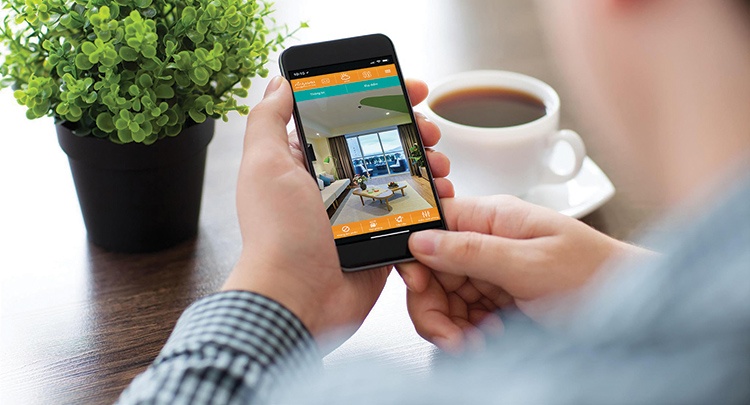Going digital for top tourism success
 |
| Photo: Shutterstock |
Huynh Thi Mai Thy, country manager of Traveloka Vietnam said, “It is without doubt that the pandemic has impacted many sectors, especially the travel and tourism industry that are Traveloka’s core business. However, we were seeing a constant recovery before the current wave came.”
To cope with the situation, Traveloka rolled out a number of solutions that could cater to the challenges faced by customers, partners, and other stakeholders. Travellers are currently very cautious about booking online for accommodation and transportation. Understanding that, Traveloka has improved its programmes and features on its platform such as offering hotel booking with free cancellations within 24 hours.
“Before the pandemic, most hotels had a no-refund policy. But over time, hotel partners understood and started to apply free cancellation policies, as well as cooperated with us to promote this feature,” Thy noted.
Furthermore, Traveloka has introduced the Clean Accommodation feature, an indicator for partners who follow the safety and hygiene protocols of the World Health Organization related to the pandemic.
“When difficulties come, we have to innovate and design our products to adapt to the new situation. I am proud to have a team of engineers at Traveloka who have been very agile in providing solutions to suit the current situation. There are solutions we never applied before. But as the pandemic hit, we had to respond very quickly,” she added.
Dang Manh Phuoc, director of Outbox Consulting, said that digitalisation has been a hot topic for many industries, including the tourism sector. Neighbouring countries like Thailand and Singapore quickly switched to smart tourism measures as they had already built a digital infrastructure.
Phuoc noted that many Vietnamese tourism companies are small- and medium-sized groups with traditional business models, which could be a barrier to their digitalisation. “However, if they want to rebound after the pandemic, they should consider restructuring their business models to embrace smart tourism,” Phuoc said,
To speed up the process, Phuoc suggested that Vietnam should build a future-ready workforce for the tourism industry which boasts not only a local understanding but also technical expertise and data analysis skills.
“They should be to apply technology in tourism to improve corporate governance as well as customer experience. Meanwhile, tourism business leaders should change their perception to adopt more digital technologies and data analysis to comprehend customers’ demand,” Phuoc explained.
Tourism businesses could quickly go digital because of their lean organisation. Moreover, the expenses for digitalisation in Vietnam are much more affordable than in other countries thanks to the availability of local IT companies. This will help Vietnamese tourism reduce their financial burden for their digitalisation efforts.
The Ministry of Culture, Sports and Tourism has recently issued the Action Programme on Tourism Development for the 2021-2025 period with the goal of making tourism a priority sector and placing Vietnam among the top 50 destinations in the world.
The programme underlines the importance of applying science and digital technology in the tourism industry, such as the use of modern technologies to build a smart tourism ecosystem which can help the sector overcome the difficulties caused by the pandemic.
To facilitate this goal, the industry needs to develop a national database system on tourism and digitalise Vietnam’s tourism resources. According to the plan, the system should include information about resorts, attractions, service establishments, and the market in general.
In addition, the industry could also focus more on smart tourism development schemes and projects. Another measure is developing software and utilities to support the management and services for tourists.
The Vietnam National Administration of Tourism (VNAT) has developed the website (travelpass.tourism.vn) for international tourists to enter their vaccination certificates before entering Vietnam.
The country will pilot vaccine passports to welcome international tourists to Phu Quoc Island in Kien Giang in October. Guests will be allowed to enter the country provided that they have a certificate of full vaccination against COVID-19 recognised by a competent authority in Vietnam.
The VNAT also launched a mobile app last October, which is available in both Vietnamese and English at vietnamtourism.gov.vn/live.
The app gives customers access to a digital map with information on restaurants, hotels, residences, entertainment, transportation, hospitals, and pharmacies. Visitors can also learn more about the present COVID-19 situation. A new feature has been added to the app allowing users to fill in health declarations without switching to another platform.
As Vietnamese tourism businesses look towards recovery, the digitalisation of the sector is more important than ever. Vu The Binh, vice chairman of the Vietnam Tourism Association, said that businesses need to quickly go digital and build an information system about visitors, products, and services.
“The pandemic has turned everything upside down. The world cannot return to the normal state. Thus, businesses must focus on improving facilities, training human resources online, and gradually implementing the digital transformation,” Binh said.
What the stars mean:
★ Poor ★ ★ Promising ★★★ Good ★★★★ Very good ★★★★★ Exceptional
Related Contents
Latest News
More News
- Manila becomes a new check-in destination for Vietnamese youth (December 11, 2025 | 18:07)
- Vietjet launches mega year-end ticket promotion (December 10, 2025 | 11:33)
- Dalat leads Vietnam’s 2025 search trends (December 09, 2025 | 13:44)
- Vietnam welcomes record wave of international visitors (December 09, 2025 | 13:43)
- Vietjet launches daily Manila flights to celebrate year-end festive peak season (December 05, 2025 | 13:47)
- The destinations powering Vietnam’s festive season travel demand (December 04, 2025 | 18:33)
- Vietnam named among the world’s most exciting winter destinations (December 04, 2025 | 15:10)
- Phu Tho emerges as northern Vietnam’s new tourism hub (December 01, 2025 | 17:00)
- Vietjet completes Airbus A320/A321 updates ahead of deadline (December 01, 2025 | 09:49)
- Vietjet resumes Con Dao flights from early December (November 28, 2025 | 15:24)

 Tag:
Tag:




















 Mobile Version
Mobile Version